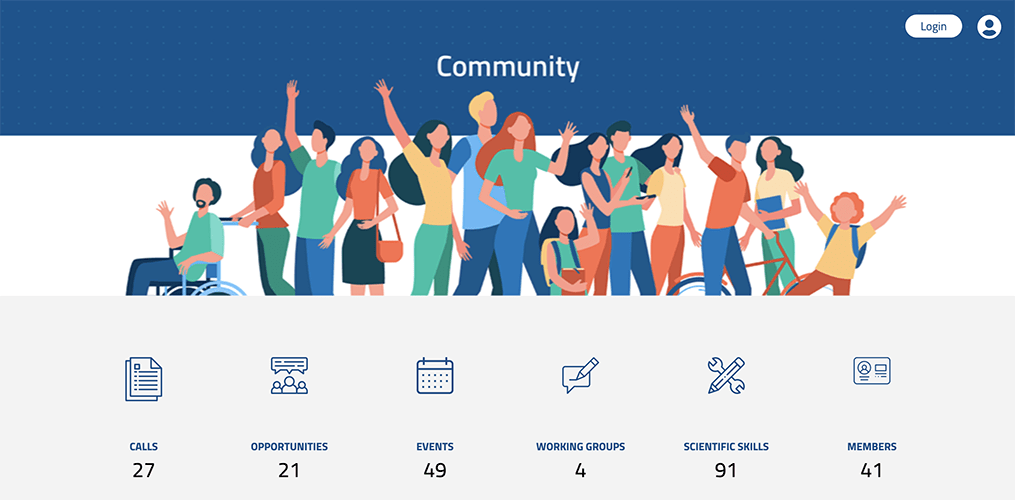
Roll up, roll up! LifeWatch followers and collaborators are cordially invited to the grand unveiling of the LifeWatch Community platform, now openly available to everyone! Who should become a member? Well, if you’re interested in biodiversity and ecosystem research, then you should!
The content of the Community platform will be widely shaped by its members, allowing them to create and contribute to forums, add opportunities, jobs and events of interest to the community, and hold meetings and collaborative brainstorming together with other members. These features are particularly well-suited to the needs of partners involved in European projects focused on biodiversity, who can benefit from the working groups as the perfect collaborative space.
Once a member of the Community, you can select your skills from a preset list, in order to facilitate linkages among the community. In need of a collaborator with a specific specialisation? Whether the keywords are data sciences, environmental sciences or biotechnology, simply carry out a search for the skills you are looking for to identify potential matches.
The platform is also a great space to learn about upcoming events. Of immediate relevance to the community is the upcoming LifeWatch ERIC Biodiversity and Ecosystem eScience Conference in Seville, for which interested persons can already submit their abstract on the Community platform.
While many aspects of the platform can be browsed without registering, we recommend opening an account in order to benefit from the full range of resources available. Sign up now to enhance the community experience for everyone, put your range of abilities and knowledge at everyone’s disposal, in a mutual and sincere effort to foster open science.
If you require any assistance with any of the registration process or functionalities of the Community, please do not hesitate to get in touch with communications[@]lifewatch.eu.